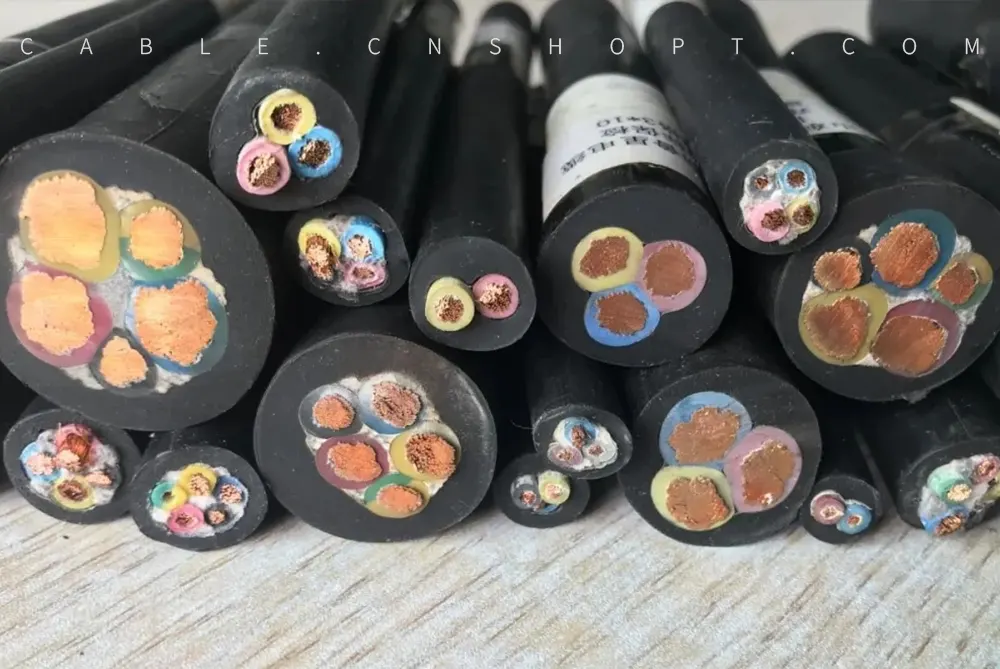Rubber cables have been widely used across various industries due to their distinct properties and versatility. While advancements in cable materials have introduced new types of cables, rubber cables maintain an irreplaceable position in many applications. In industries where reliability is paramount, rubber cables provide peace of mind, ensuring that operations continue smoothly without the risk of cable failure.
Rubber cables are known for their exceptional flexibility, which makes them ideal for applications where cables need to be bent or moved frequently. Their elasticity helps prevent breakage or damage under mechanical stress, making them highly durable. For example, in mobile equipment or environments where machinery is constantly in motion, rubber cables can withstand the wear and tear far better than many alternatives like PVC or thermoplastic cables.
Rubber cables are specifically designed to operate in harsh environments where other materials might degrade. They are highly resistant to extreme temperatures, UV radiation, chemicals, oils, and moisture. This makes them indispensable in outdoor applications, such as in the mining industry, shipbuilding, or construction, where exposure to the elements is common. Other types of cables, such as PVC or polyethylene, are more prone to cracking or becoming brittle when exposed to these conditions.

Rubber’s natural insulating properties make rubber cables highly effective in preventing electrical leakage. They can handle higher voltages and provide better protection in demanding electrical applications. This insulation is essential in environments where safety is a priority, such as power plants or industrial machinery. While other cables might offer insulation, few can match the safety levels of rubber, especially in heavy-duty or high-voltage scenarios.
Rubber cables can withstand high temperatures without losing their flexibility or functionality. Unlike PVC or thermoplastic cables, which can melt or deform when exposed to high heat, rubber cables maintain their integrity. This makes them ideal for applications such as in industrial ovens, furnaces, or electrical equipment that generates significant heat. Their heat-resistant properties also extend to preventing fires, as rubber is less likely to ignite compared to many other cable materials.
Rubber cables provide excellent resistance to mechanical shocks and vibrations, which is crucial in environments with heavy machinery, such as factories, oil rigs, or construction sites. These cables absorb impact forces, reducing the risk of internal damage or short circuits. Other cables, like those with plastic or metal sheathing, do not offer the same level of absorption, making rubber cables a safer option in dynamic environments.
Rubber cables are used in a wide range of applications, from heavy industrial equipment to sensitive medical devices. Their versatility is a result of their unique combination of flexibility, durability, and environmental resistance. For example, in the entertainment industry, rubber cables are commonly used for lighting and sound equipment due to their flexibility and toughness, even when exposed to foot traffic or weather changes.
Rubber cables are designed to last longer in challenging conditions compared to other materials. The robust outer rubber layer protects the inner conductors from abrasion, corrosion, and environmental degradation. In contrast, other cable materials may need to be replaced more frequently due to wear and tear, leading to higher long-term costs and maintenance requirements.
Pre:Understanding Wires and Cables
Next:none
CNSHOPT team will generally respond to your message within eight hours. If it is a weekend or a Chinese statutory holiday, there will be a delay.
We prefer you to contact us via email : info@cnshopt.com. In case of emergency, you can directly contact our WhatsApp account. If you do not receive our reply within 24 hours, please check your spam mailbox, it may appear there. We hope you will add our email to your trust list.